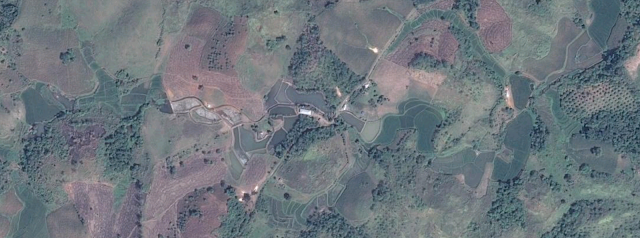I recently came in contact with 2 brilliant gentlemen from Ethiopia who wanted to modernize farming in Ethiopia. Having been involved in the farming business, although considered in the upper 1% of farming categories I fully understand the challenges most farmers face especially in underdeveloped and developing world where traditional farming have not changed much in a thousand years. Their aim is to revolutionize farming to increase yield using modern methods and employing wireless sensors. The question is will this succeed in remote rural areas in third world countries?
Lets look at the problem. Most farmers:
For large farms employing machinery dramatically increase productivity since one person can tend a large area in the shortest possible time, hence timing planting and harvesting perfectly. For small scale farmers they would rely on cheap labor and their own hard work to tend the farm which affects productivity. For large farms investing in modern machinery makes a lot of sense. However with our aim to provide jobs we mostly employ a large number of people and a mix of manual labor and machine. Our aim is to employ enough people to alleviate poverty in the community. It is always better to teach someone how to fish instead of giving them a fish.
Determining soil composition, water purity, air quality helps in increasing yield from farmlands. This involved having the right measurement tools to determine which crops to plant at a particular season and what fertilizers to use. The only problem is small scale farmers are not able to afford buying such measurement tools. Perhaps a better solution is to establish a cooperating community of farmers who can share measurement tools and analytic to give everyone a good start.
Then there is constant monitoring to determine if crops required more water, better fertilizers. Having said that all monitoring tools are expensive so only large farms can afford to do so. How can monitoring solutions be shared for it to become cost effective enough for small scale farmers to afford?
At the end of the day farming is a business and businesses need to generate returns of investments. Our approach had been focus on changing the way farms are operated and better land use. For example we convert rice fields to fisheries since the returns are better, although the investment are higher. Utilizing sensors to monitor daily progress is good, however the data is useless without expert analysis and such knowledge is the primary driver to fully modernize farming, make it more efficient and improve returns.
Lets look at the problem. Most farmers:
- Are poor, they hardly make enough of a living
- Employ traditional farming methods developed thousand years ago
- Uneducated and lacks knowledge of modern farming methods and techniques
- Can not afford to use modern farming tools even if they wanted to
- Are in debt and in the risk of losing their farms
For large farms employing machinery dramatically increase productivity since one person can tend a large area in the shortest possible time, hence timing planting and harvesting perfectly. For small scale farmers they would rely on cheap labor and their own hard work to tend the farm which affects productivity. For large farms investing in modern machinery makes a lot of sense. However with our aim to provide jobs we mostly employ a large number of people and a mix of manual labor and machine. Our aim is to employ enough people to alleviate poverty in the community. It is always better to teach someone how to fish instead of giving them a fish.
Determining soil composition, water purity, air quality helps in increasing yield from farmlands. This involved having the right measurement tools to determine which crops to plant at a particular season and what fertilizers to use. The only problem is small scale farmers are not able to afford buying such measurement tools. Perhaps a better solution is to establish a cooperating community of farmers who can share measurement tools and analytic to give everyone a good start.
Then there is constant monitoring to determine if crops required more water, better fertilizers. Having said that all monitoring tools are expensive so only large farms can afford to do so. How can monitoring solutions be shared for it to become cost effective enough for small scale farmers to afford?
At the end of the day farming is a business and businesses need to generate returns of investments. Our approach had been focus on changing the way farms are operated and better land use. For example we convert rice fields to fisheries since the returns are better, although the investment are higher. Utilizing sensors to monitor daily progress is good, however the data is useless without expert analysis and such knowledge is the primary driver to fully modernize farming, make it more efficient and improve returns.
